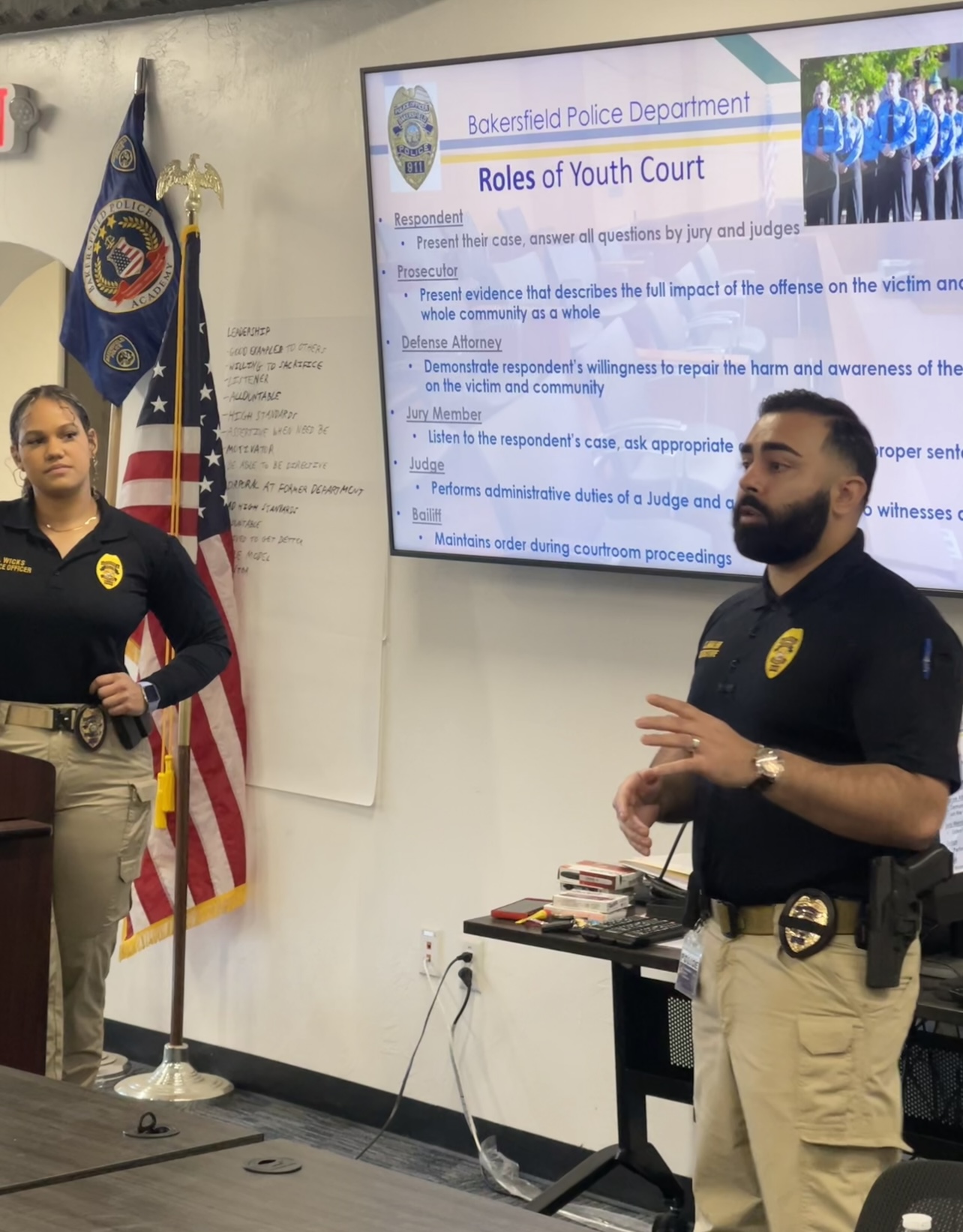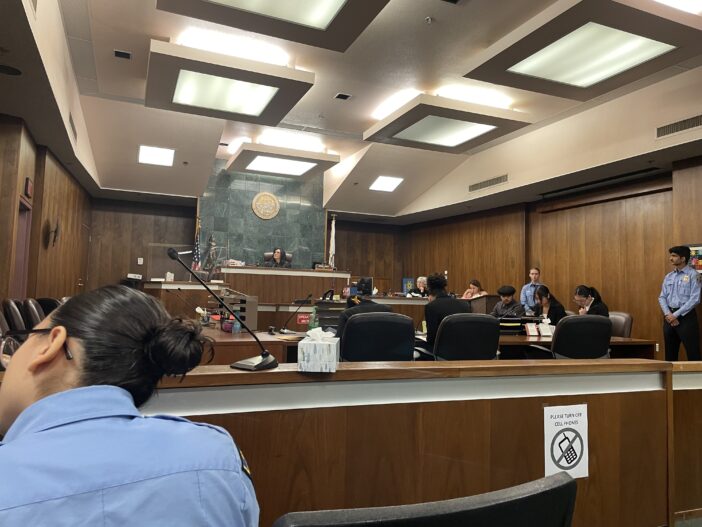Bakersfield police officers often sit in on court cases, but on a recent Wednesday, Detective Sandeep Malhi and Captain Clayton Madden watched with nervous excitement as they witnessed the first court case under the Youth Diversion (YD) Program.
The 12-person jury, the attorneys, the defendant, and even the bailiff manning the door were all teenagers who had volunteered to be a part of a pilot program that will offer an alternative to the traditional judiciary system for Bakersfield’s youth.
“This program was created in a continued effort to build relationships in the community and to ensure all youth have an opportunity to be successful in life. As a department and as a community, we need to provide more support for the youth, so they don’t go down the wrong path,” Malhi said. “We have a lot of kids whose parents were arrested early on, and now their children are, it’s a revolving pattern. These kids get labeled as troublemakers, and ultimately embrace the deviant behavior.
The newly launched initiative has been a work in progress the last few years as the Covid-19 pandemic halted the program’s original launch date in 2020. But in the last three years, with more time, funding and help from the community, the initiative has evolved into a robust program looking to change the path for teens in trouble and has high hopes of becoming a model for the state.
In December 2022, Bakersfield Police Department revised its policy on juvenile first offenders, asking officers to route their cases with suspects between the ages of 14 and 17 who meet the criteria of the YD Program.
This criteria includes first-time offenders who committed one of the following crimes: Petty theft, vandalism, battery, public intoxication, under the influence of a controlled substance, possession of cannabis, possession of narcotics paraphernalia, or possession of a controlled substance.
“Kids can be held accountable and have an opportunity to learn from their mistakes without involving the juvenile justice system, “Malhi said. “Sometimes kids want to start doing what’s right, but then they feel it’s impossible. The criminal record is brought up during job applications and ultimately stigma follows them in life…we’ve seen it where kids start giving up and just resort back to criminal activity and we asked ourselves ‘how can we stop this from happening?”
Malhi and Madden were inspired by several police departments that had their own YD programs in place. They visited programs in Los Angeles, Murrieta and Riverside and were able to see how they could create a program to fit the specific needs of Bakersfield.
What they came up with is a program that helps kids learn from their experience while giving other kids a chance to work with mentors, get experience in mock trials, address real cases, and receive real-world experience within the justice system.

Detective Sandeep Malhi was part of a weekend long training for teens interested in being a part of Bakersfield Police Department’s Youth Diversion pilot program. Photo courtesy Bakersfield Police Department.
Seventeen-year-old Nathanial Rosas of Centennial High School volunteered to be a part of the inaugural court hearing. The graduating senior is looking to go to college to study criminal justice and hopes to one day wear a police badge that reads Bakersfield PD. In the meantime, getting to be a part of the new YD Program has been a great way to connect with the department, while also helping his community, he said.
“I do want to make a difference in my community and guide other kids who aren’t taking the right path,” said Rosas, who was one of the 12 serving on the jury. “It has been a great experience working with the police officers and detectives and getting to see the inside of the court room, while understanding what the consequences are for these misdemeanors. As a teenager myself, I do feel once kids get processed into the system, they just start thinking they are ‘bad’ and ‘there’s no future for them.’”
“This program will keep kids from getting into the system and they won’t get a record in their future. It can change everything for them,” he added.
The first court hearing for the YD Program was held on Feb. 22 at the Juvenile Justice Center. Kids had trained for a few months, brushing up on their public speaking skills, understanding what a misdemeanor is, and working on their critical thinking skills to help deliberate and come up with proper sentences for the teenage respondents.
“I think it’s a great idea to give second chances – especially to youth,” said Erik Testori, 17, who was one of the teens on the jury.
On the night of the first court hearing, teens deliberated on two cases: one involved possession of cannabis and the other petty theft.
Teen attorneys spoke for and against the respondent, and in the end, each received restorative sentencing options that included: community service hours, apology letter, life plan essay, curfew, youth court jury duty, educational workshops, attendance/grade checks, and even counseling to deal with any underlying issues. Afterward, citizen volunteers from the Bakersfield Police Department and police officers provide the respondent mentorship throughout the process.
The pilot program will hear two cases a month through the rest of the school year and will reconvene in the fall. The police department is working in partnership with local organizations and volunteers: Honorable Judge Gill, Honorable Judge Avila, and Honorable Judge Norris, the District Attorney’s Office, Kern High School District, Kern County Sheriff’s Office, and Juvenile Probation.
“We want them to understand mistakes happen,” Malhi said. “But they don’t have to keep going down the wrong path. We’ve looked at other programs and there’s a success rate of 97 percent. We have an opportunity to hold kids accountable, but also stop some of them from reoffending. It’s a win for everyone.”
 Behind the Badge
Behind the Badge



